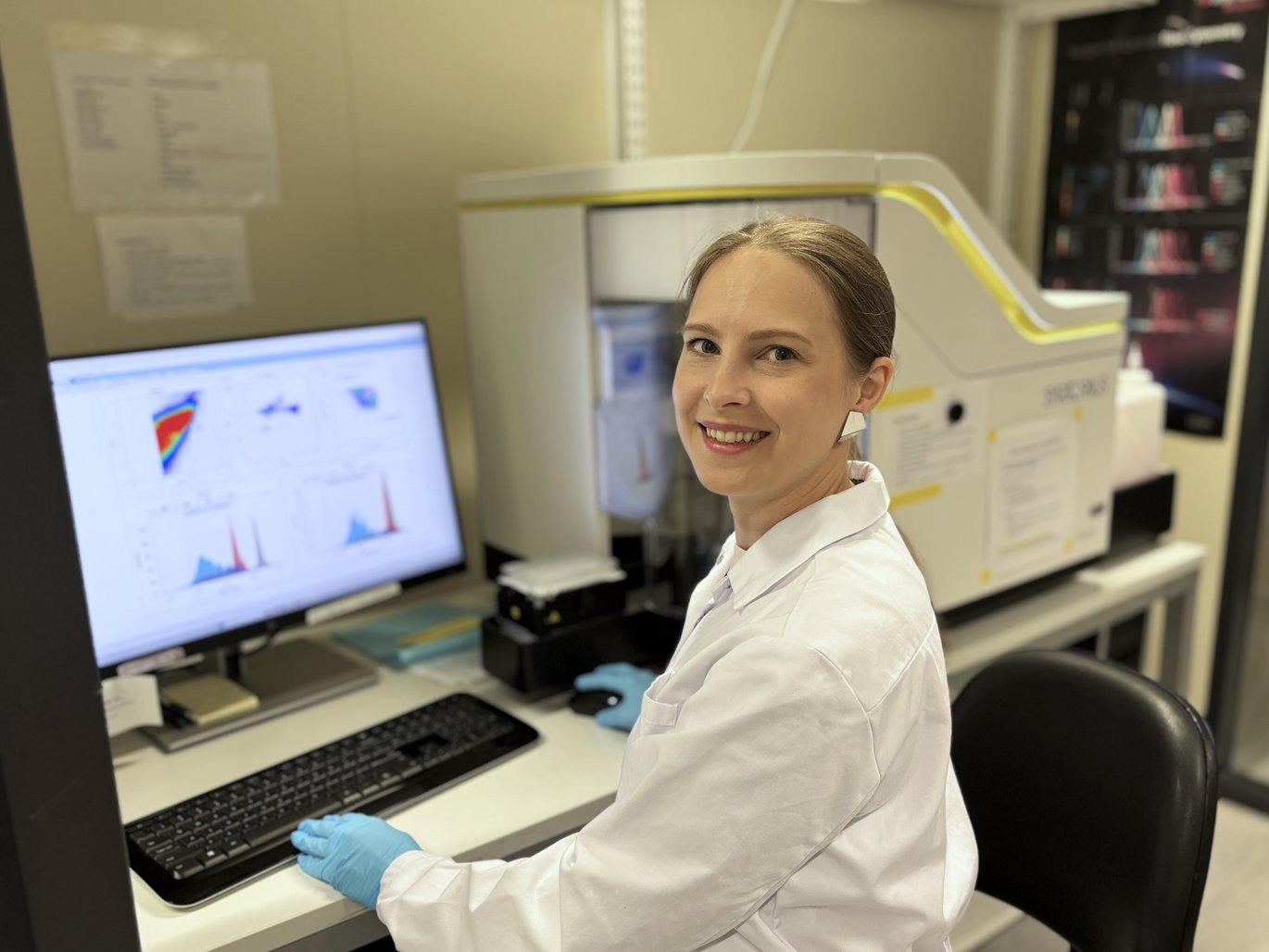New genetic discovery reveals key brake in human immune system
Researchers uncover how loss of a gene called MAP4K1 amplifies T cell responses, offering insights into immune disorders and potential therapies.

A collaborative study between the Institute for Molecular Medicine Finland (FIMM) at the University of Helsinki and the Norwegian Centre for Molecular Biosciences and Medicine (NCMBM) at the University of Oslo has identified a new genetic cause of immune dysregulation.
The research, published in The Journal of Allergy and Clinical Immunology, reveals that a defective MAP4K1 gene—which encodes the signalling protein HPK1—leads to overactive T cells and repeated episodes of inflammation.
The researchers investigated two Finnish families with unexplained immune problems, which included recurrent fevers, pain in the joints, stomach and muscles, nephritis, and in some cases severe complications following Epstein–Barr virus infection.
Using genomic analysis, they identified two previously unknown variants in the MAP4K1 gene, both predicted to disrupt gene function. In each patient, only one of the two gene copies was altered, leaving the other intact.
Inborn errors of immunity are rare genetic conditions, but they provide powerful clues about how the immune system works.
“By studying these rare disorders, we can uncover fundamental mechanisms that also influence common diseases like autoimmunity, allergies and even cancer,” says Meri Kaustio, the study’s first author and a researcher at FIMM.
A clinically impactful Nordic collaboration
The signalling protein affected by the gene defect normally acts as a brake on T cell activation, preventing excessive immune responses. In individuals with these variants, this brake is partially lost. As a result, T cells become hyperactive and produce high amounts of inflammatory molecules such as interferon-γ and TNF. While these molecules are essential for fighting infections, their excessive production can lead to harmful inflammation and tissue damage.
To confirm the genetic link, the team used CRISPR-Cas9 gene editing to disrupt MAP4K1 in healthy T cells and to correct the mutation in patient-derived cells. These experiments provided strong evidence that MAP4K1 deficiency alters T cell function and drives the disease.
This discovery was made possible through close collaboration between FIMM and NCMBM, both members of the Nordic EMBL Partnership for Molecular Medicine.
“It’s a great example of how shared infrastructure and expertise across the Nordic countries accelerate discoveries that benefit patients,” says Janna Saarela, senior author and Director of NCMBM.
Although the identified variants are extremely rare, the findings have broader significance. They highlight HPK1 as a critical regulator of human T cell activity—a target already being explored in cancer immunotherapy.
The study also underscores the importance of genetic diagnosis for patients with unexplained immune disorders. Identifying the underlying cause can guide more targeted therapies, such as drugs that block specific inflammatory pathways.
“Our findings reaffirm how a single gene can tip the balance of the immune system. This knowledge could help design better treatments for both rare and common immune-mediated diseases,” says Janna Saarela.
Original publication:
Heterozygous loss of MAP4K1 causes immune dysregulation by amplifying T cell responses. Kaustio Meri, Szymanska Monika, Li Weiwei, Braathen Ragnhild, Campbell Tessa M., Haugen Frida L., Dahal-Koirala Shiva, Silventoinen Kristiina, Nurmi Katariina, Dinius Matas, Nowlan Kirsten, Hetemäki Iivo, Chen Pu, Mamia Katariina, Seppänen Mikko R.J., Grönholm Juha, Kekäläinen Eliisa, Haapaniemi Emma M., Aalto Kristiina, Martelius Timi, Bryceson Yenan, Eklund Kari K., Saarela Janna.
The Journal of Allergy and Clinical Immunology, DOI: 10.1016/j.jaci.2025.07.010